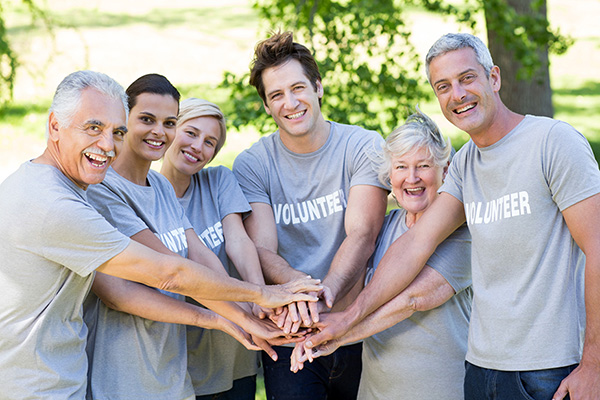instinct
You Too Were Born With Psychic Senses
 In media interviews, one of the first questions that celebrity psychics and mediums are often asked is, “At what age did you realize you had this gift?”
In media interviews, one of the first questions that celebrity psychics and mediums are often asked is, “At what age did you realize you had this gift?”
However, I don’t believe this ability is exclusive to a select few. We are all born with psychic senses. Most people simply need to learn how to tune into and trust themselves enough to use all their senses with confidence.
For example, imagine someone walking through the woods suddenly feeling the hair on the back of their neck stand up, or a prickling sensation down their spine, when a wild animal is nearby. This alert system kicks in without explanation. People rarely question how it works. They just accept it as natural instinct.
Psychic sensing is no different, but it requires taking the time to understand how your intuitive senses work allows you to use them more consciously and effectively.
It’s like learning to sing. Some people are born with a natural gift. Others need guidance and training to develop their voice. Psychic ability works the same way.
One of the most common questions I hear is, “Why can’t I see, hear, or just know things like you do?” The answer is simple: you can. You just need to relax, trust yourself, and perhaps take a few classes to discover your personal “shorthand.”
How To ‘Face Everything And Rise’ (F.E.A.R.)
 It’s okay to feel afraid sometimes – some fear responses are a natural and vital part of our built-in self-protection system. Rooted in our primal survival instincts, fear helps us identify and respond to real threats, such as a raging fire or a dangerous wild animal.
It’s okay to feel afraid sometimes – some fear responses are a natural and vital part of our built-in self-protection system. Rooted in our primal survival instincts, fear helps us identify and respond to real threats, such as a raging fire or a dangerous wild animal.
Survival fear arises in response to immediate, tangible threats to our safety or well-being. It’s a necessary, life-preserving mechanism based on objective, real-world risks that ensure our survival. By activating the body’s fight-or-flight response, it enables us to act quickly and stay safe.
But not all fears are instinctual, nor do they serve our highest good. Irrational fears arise from societal conditioning, cultural expectations, false beliefs, past traumas, or imagined scenarios. These fears are learned or imagined, not instinctual.
Unlike survival fear, irrational fears reflect internalized doubts, imaginery threats and false narratives that serve no protective function at all. Instead, they just interfere with our personal growth, decision-making, and well-being.
Conditioned fears are typically exaggerated or irrational, existing more in the mind than in reality. Examples include fear of failure, fear of rejection, or fear of not living up to social standards. Self-limiting fears can trap us in cycles of self-doubt and hesitation, limiting our ability to take risks, grow, and live wholeheartedly.
To live our best lives, we must learn to recognize these irrational fears, challenge their validity, and prevent them from taking control of our life and well-being. By stepping back and evaluating the source of our fears, we can release what no longer serves us, reclaim our joy, and unlock our full potential.
The Constant Battle Of Head Versus Heart
 Have you ever second-guessed yourself, done or said something that went against your gut, only to realize in retrospect that your initial feeling or hunch was right? Had you acted differently, it could have saved you a lot of heartache and loss, emotionally, physically or financially?
Have you ever second-guessed yourself, done or said something that went against your gut, only to realize in retrospect that your initial feeling or hunch was right? Had you acted differently, it could have saved you a lot of heartache and loss, emotionally, physically or financially?
If you have ever been in this position, know that you are not alone. The “head versus heart” dilemma can be very confusing and frustrating. Many of my clients struggle with it and some experience a great deal of confusion, stress and emotional discomfort as a result.
When faced with difficult decisions or challenging situations, we usually have a good sense of what the best course of action might be. But then we tend to look for concrete evidence to support our feelings and intuitive hunches, and when we cannot find any, which is often the case, our heads take precedence over our hearts. So we end up discounting our feelings and intuitions, usually to our own detriment.
The struggle between head and heart is a common theme in philosophy, literature, art, and popular culture, as we all regularly experience inner conflicts between reason and emotion, logic and intuition, responsibility and passion.
Comparison Poisons The Heart, Mind And Soul
 When we are going through difficult times, we tend to compare our struggles and suffering to the lives of others and measure ourselves by their perceived happiness, joy and success.
When we are going through difficult times, we tend to compare our struggles and suffering to the lives of others and measure ourselves by their perceived happiness, joy and success.
We often do this these days by comparing our own lives to what others post on social media. Then we judge and mentally torture ourselves for not living up to other people’s highlight reels of happiness and good fortune.
Sure, it is sometimes beneficial to self-reflect and strive for more based on the examples of others who serve as our role models. However, when we indiscriminately compare our own life journey to everyone else’s, we end up diminishing our own uniqueness and value.
While social comparison can motivate us to improve and grow, it can also lead to toxic self-judgment, envy, resentment, and extreme unhappiness. Constantly focusing on the highlights of other people’s lives quickly becomes toxic and self-destructive.
However, this tendency is not a character flaw in some of us. In fact, it is a natural evolutionary instinct that we all have. Our ancestors survived by living in social groups. Our tendency to compare ourselves to others is therefore a very common human trait, rooted in our evolution as a species.
Stop Surviving And Start Living
 The past three years, I have heard many people say they’re living in ‘survival mode.’ For some it has been about health and personal safety, for others it was isolation and loneliness, or bereavement and grief, or loss of employment and financial security.
The past three years, I have heard many people say they’re living in ‘survival mode.’ For some it has been about health and personal safety, for others it was isolation and loneliness, or bereavement and grief, or loss of employment and financial security.
It has certainly been an unprecedented, challenging time for our generation. And at times it has indeed been an actual fight for survival, which many tragically did not survive. Many families are still grieving the loss of their loved ones.
Sadly, for some it has also been a time of fearing many things that never happened. It has also been a time that revealed how some folks may be in need of a major ‘privilege check.’ For example, I personally know people who were excessively anxious during the quarantine lockdowns because they were eating too much and gaining weight, or were upset because they could not go to the salon or spa, while there are people in the world who were not even able to feed their families, or worse, had nowhere safe to take shelter.
The global pandemic has indeed been a unique opportunity to reflect on our beliefs, values, and what truly matters to us. Not everyone made the most of this prospect. It seems for some it is still difficult to move beyond the self-defeating mindset of ‘it’s a struggle to survive.’
Yes, life is sometimes definitely hard for all of us. The past three years proved that once again on a global scale. Life can throw major curve balls our way and we all handle things through our personal lens on the world. Some of us are more resilient than others; and some of us more privileged than others. Being in ‘survival mode’ is therefore relative to the individual.

